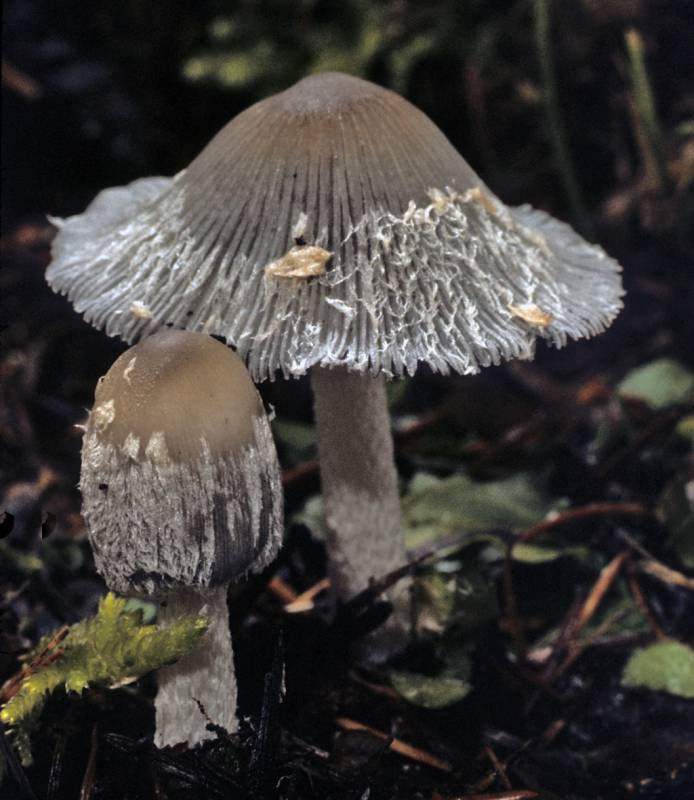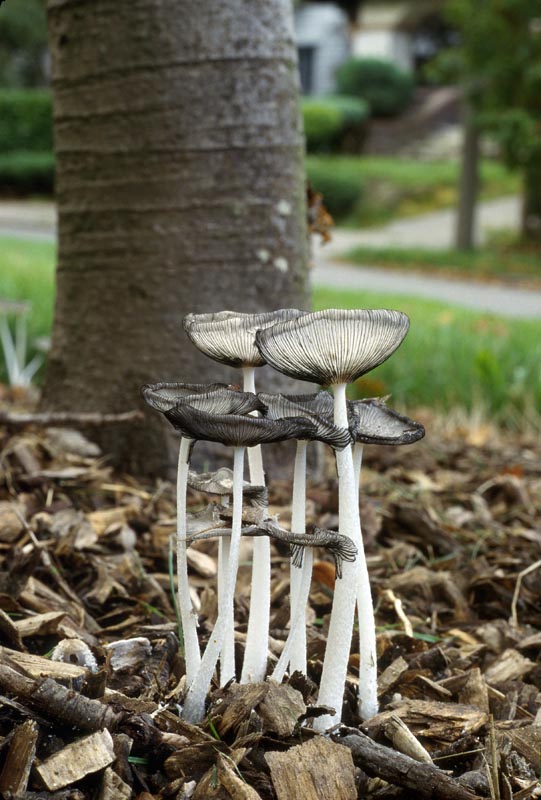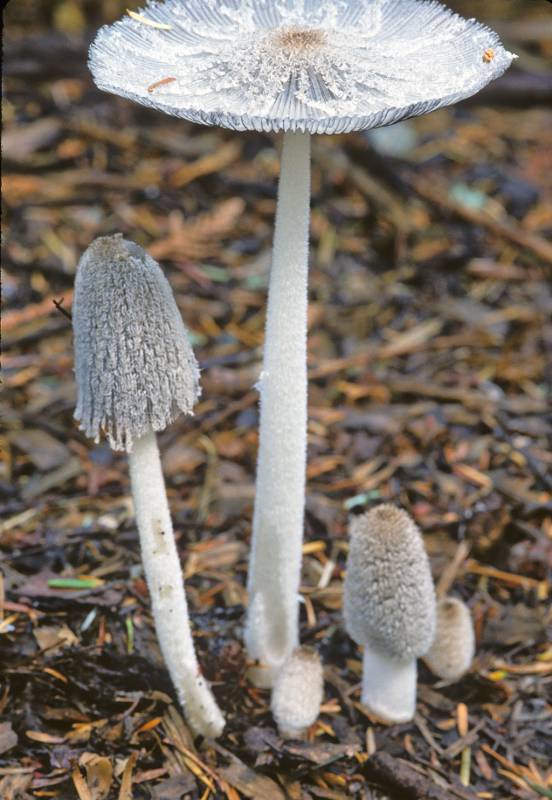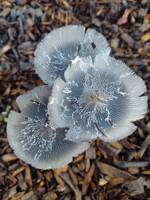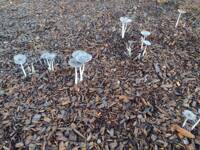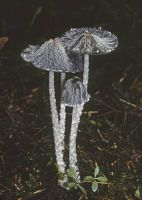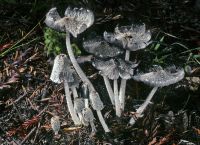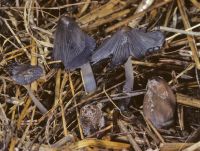Distribution: Occurring west of the Cascades crest in Washington; Global.
Habitat: On compost, wood chips, horse manure, etc.
Origin: Native
Conservation Status: Not of concern
Edibility: Too small and fleshless to be of culinary interest.
Too small and fleshless to be of culinary interest.
Coprinopsis lagopus (= Coprinus lagopus) is a common, short-lived, garden mushroom, which occurs in small to large groups in soil, leaf litter, and wood or bark chips. Few last as long as a day, and most collapse only hours after emerging. It is recognized by its white to gray cap covered with coarse white veil fibrils, habitat, and tendency for the cap to remain after the gills have deliquesced. Additional microscopic characters are the hyphal nature of the veil and the spores, ellipsoid to slightly almond-shaped and 10–135 × 6–7 µm. Coprinopsis lagopides has slightly smaller lentil-shaped spores (6– 9 × 45–6 × 5–7 µm) and is said to frequent burned sites. Both are too small and fleshless to be of culinary interest.
Sources: Trudell, Steve and Joe Ammirati. Mushrooms of the Pacific Northwest. Portland, Timber Press, Inc. 2009.
Publication: Taxon 50 (1): 229. 2001.
PNW Herbaria: Specimen records of Coprinopsis lagopus in the Consortium of Pacific Northwest Herbaria database
CalPhotos: Coprinopsis lagopus photos

